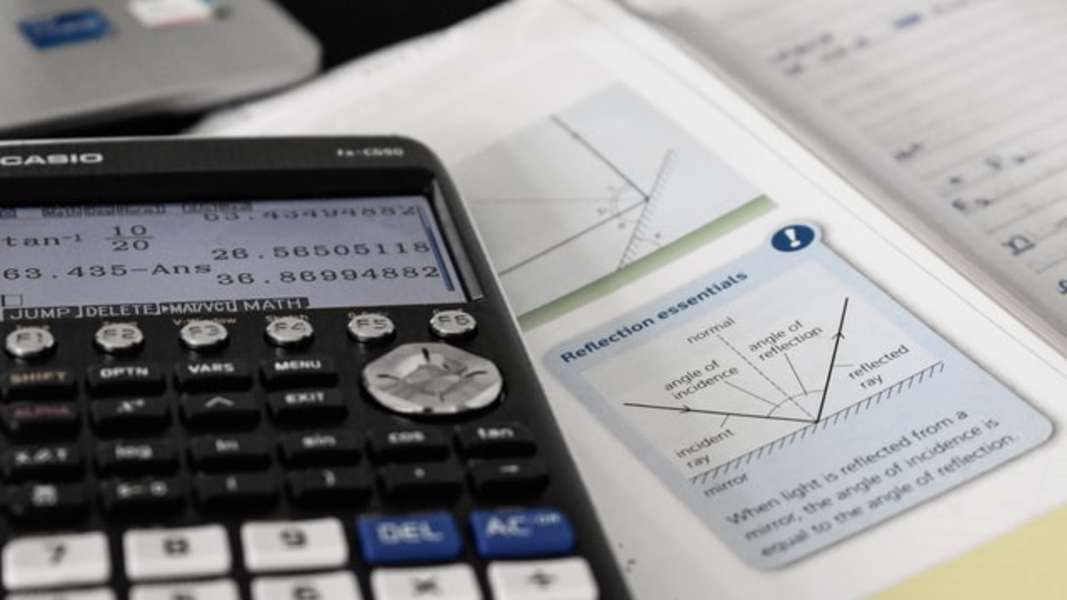Aptitude test(s) are often used by employers as a way to screen candidates for potential employment. These tests can measure a variety of skills and abilities, such as problem-solving, math skills and verb,al ability.
Candidates often find aptitude tests challenging, but they can be a useful tool for assessing a person’s ability. Aptitude tests can help employers determine if a candidate has the skills necessary for the job. The results of these tests can also help employers decide which candidates should be interviewed.
This article explores the main types of aptitude tests, including the jobs that usually request candidates to take these tests, and advice on how to prepare.
Numerical Reasoning Test
What is a numerical reasoning test?
A numerical reasoning test is an aptitude test that measures a candidate’s skill in working with numbers and solving mathematical problems.
These tests are used by employers to assess whether a candidate has the acangically and quantitatively, and to handle numerical data. Numerical reasoning tests can be in the form of multiple-choice questions, or they may require the candidate to perform calculations.
Jobs that may require you to take a numerical reasoning test
Numerical reasoning tests are used by a variety of employers, including those in finance, accounting, engineering and scie,nce.
They are also used by organizations that require employees to handle numerical data, such as call centres and retail stores. Candidates who do well on these tests usually have strong math skills and the ability to think logically.
How to prepare for a numerical reasoning test
There are a number severalprepare for a numerical reasoning test. One is to practice solving math problems. Math questions are available online, both in timed and untimed formats.
You can also practice by reviewing math concepts that you know. For example, if you have a firm grasp of algebra and geometry, you will be well-prepared for any questions.
Verbal Reasoning Test
What is a verbal reasoning test?
A verbal reasoning test is a type of aptitude test that measures a candidate’s skills in understanding and using written language. Verbal reasoning tests are often used by employers to identify candidates with strong verbal skills, which are important for jobs that require effective communication.
The questions on a verbal reasoning test can vary in difficulty, but they typically assess a candidate’s ability to understand and analyze written passages, identify the main idea of a text, and understand relationships between words and concepts.
Jobs that may require you to take a verbal reasoning test
The most common use for verbal reasoning tests is in the recruitment for jobs in the accounting, banking and lega,l professions. There are some jobs used as part of their recruitment processes, such as sales representative, teacher, human resources manager, marketing executive and jour,nalist.
How to prepare for a verbal reasoning test
It is important to practice regularly. There are many verbal reasoning tests practice options that candidates can take online or in print form. The more familiar a candidate is with the types of questions they will be asked, the better they will perform on the day of the test.
You can also improve your skills by reading books, newspapers, and magazines. This way you will be able to read through a passage quickly and identify the most important information, which is key in these types of tests.
Diagrammatic Reasoning Test
What is a diagrammatic reasoning test?
Diagrammatic reasoning tests are a type of intelligence test that measures a person’s ability to understand and analyze complex diagrams. These tests are often used in job interviews, academic admissions, and other selection processes.
The questions on diagrammatic reasoning tests can vary, but they typically ask the test taker to identify relationships between objects in a diagram or to solve problems using diagrams.
Jobs that may require you to take a diagrammatic test
Some of the most common jobs that require this skill set include engineering positions, scientific research roles, and teaching jobs.
However, there are also several other opportunities available for those with strong diagramming skills. These can include work in marketing, information technology, and even law.
How to prepare for a diagrammatic reasoning test
The best way to prepare for a diagrammatic reasoning test is to practice solving puzzles that involve diagrams. Many online resources offer practice puzzles, and many books also include exercises in diagrammatic reasoning.
It is also recommended to practice with test questions that you might encounter in your aptitude test. Familiarizing yourself with the types of questions that are typically asked on these tests will help you perform better on the real thing.
Abstract Reasoning Test
What is an abstract reasoning test?
Abstract reasoning tests are designed to measure a person’s ability to think logically and strategically when faced with unfamiliar concepts. They typically contain a series of questions that ask the test-taker to identify patterns, similarities, and differences between shapes, numbers, or letters.
Some abstract reasoning tests also include word problems that require the test-taker to use logic and problem-solving skills to arrive at a solution.
Jobs that may require you to take an abstract reasoning test
Positions that typically require an abstract reasoning test include mathematicians, scientists, philosophers, and psychologists.
Many other jobs may require an abstract reasoning test as well. These include jobs in the technology industry, such as computer programmer and systems analyst, and jobs in the medical field, such as surgeon and radiologist.
How to prepare for an abstract reasoning test
One of the most important things you can do is practice. Many online resources offer practice questions, so take advantage of them. Additionally, abstract reasoning skills can be improved by practising puzzles and other brainteasers.
It’s also important to be well-rested on test day, and stay calm and focus on the task at hand. If you get stuck on a question, don’t spend too much time trying to solve it. Move on and come back to it later if you have time.
Logical Reasoning Test
What is a logical reasoning test?
A logical reasoning test is designed to measure a person’s critical thinking and problem-solving ability. More specifically, these tests typically assess a person’s ability to understand complex information, identify patterns and relationships, and draw logical conclusions.
Logical reasoning tests can be used in a variety of settings, including academic settings (e.g., for admission to graduate programs), professional settings (e.g., for hiring purposes), and personal settings (e.g., for self-improvement).
Jobs that may require you to take a logical reasoning test
There are a variety of jobs that may require candidates to take a logical reasoning test as part of the application process. Some of these jobs include accountant, auditor, analyst, engineer, and scientist. Logical reasoning tests are also used in other fields such as law enforcement and sales.
How to prepare for a logical reasoning test
You can prepare for a logical reasoning test by practising problem-solving. You can do this by completing practice problems or puzzles.
Another way to prepare for a logical reasoning test is to familiarize yourself with the types of questions that are typically asked. This will help you know what to expect on the test and how to approach the questions.
Analytical Reasoning Test
What is an analytical reasoning test?
An analytical reasoning test measures your ability to think logically and solve problems. The questions on these tests can be tricky, so it’s important to stay calm and focus on the task at hand.
You will be asked to identify patterns and relationships between different pieces of information. You’ll also need to be able to come up with logical solutions to problems.
Jobs that may require you to take an analytical reasoning test
Many roles require analytical reasoning as this skill set is necessary to carry out daily duties. For example, scientists have to be able to analyze data to come to conclusions, lawyers need to logically assess cases and legal precedents, and mathematicians have to solve complex problems and find patterns in data.
How to prepare for an analytical reasoning test
The best way to prepare for an analytical reasoning test is to practice solving logic puzzles and brainteasers. You can also improve your problem-solving skills by practising math and science concepts.
Be sure to review the types of questions that are likely to appear on the test, and make a study plan that will help you learn how to answer them quickly and accurately.
Spatial Reasoning Test
What is a spatial reasoning test?
Spatial reasoning tests are cognitive tests that measure a person’s ability to think in three dimensions. This type of thinking is necessary for tasks such as reading a map, assembling a puzzle, or parking a car in a tight spot. Spatial reasoning tests are often used in job screenings and in academic settings to measure problem-solving abilities.
Jobs that may require you to take a spatial reasoning test
Roles in industries such as engineering or architecture may require spatial reasoning testing as visualizing objects in three dimensions, and understanding how they interact with one another is helpful when designing structures or landscapes.
How to prepare for a spatial reasoning test
If you’re thinking of a career that requires spatial reasoning, it’s important to be prepared for the test. There are a few things you can do to improve your chances of success: practice visualization exercises, learn basic geometry concepts, and study common spatial relationships (like north-south-east-west).
Mechanical Reasoning Test
What is a mechanical reasoning test?
A mechanical reasoning test measures a person’s ability to understand mechanical principles and apply them accordingly. These tests are used by employers to determine if a potential employee has the skills necessary to do the job.
The questions on a mechanical reasoning test can be about machines, tools, or devices and how they work. Some of the questions may require the use of basic math skills.
Jobs that may require you to take a mechanical reasoning test
One example is a job as an engineer. Engineers need to be able to understand how machines work and figure out how to fix them or make them better.
Another example is a job as a mechanic. Mechanics need to be able to understand how cars and other machines work and fix them when they are broken.
How to prepare for a mechanical reasoning test
The most efficient way to approach mechanical reasoning problems is to try to visualize how the machine works. Break the problem down into smaller pieces, and then work through each step systematically.
If you get stuck, don’t panic! Take a break and come back to it later. Chances are, you’ll be able to figure out the answer if you give yourself some time.
Non-Verbal Reasoning Test
What is a non-verbal reasoning test?
Non-verbal reasoning is a cognitive process that allows people to perceive, understand, and remember information in the absence of words. This type of reasoning is often used in intelligence tests and assessments. Non-verbal reasoning tests measure a person’s ability to think logically and solve problems using images, shapes, and patterns.
Jobs that may require you to take a non-verbal reasoning test
Non-verbal reasoning tests are important in the business world. They are used to identify candidates with problem-solving skills and the ability to think outside the box.
Engineering, science and IT are some of the fields that use non-verbal reasoning testing as part of their hiring processes, but these tests can also be found in other areas such as sales and marketing.
How to prepare for a non-verbal reasoning test
To prepare for a non-verbal reasoning test, it is important to practice identifying shapes and patterns. One way to do this is by using online resources or testing yourself with practice questions in books or online.
Some tests ask you to identify relationships between shapes, while others ask you to match identical shapes. Being prepared for all types of questions will help you feel more confident when taking the test.
Financial Reasoning Test
What is a financial reasoning test?
A financial reasoning test is a type of intelligence test that measures an individual’s ability to understand and solve financial problems.
Financial problems can be complex, and require the ability to understand and analyze data, as well as to apply mathematical skills. The test typically includes questions about personal finance, investment planning, and retirement savings.
Jobs that may require you to take a financial reasoning test
When it comes to jobs that use financial reasoning testing in their pre-screening process, many different positions can fall into this category.
Accountant, auditor, and bookkeeper are all roles that typically require candidates to take a financial reasoning test. Individuals in these roles need the ability to understand financial statements and basic accounting principles.
How to prepare for a financial reasoning test
When you take a financial reasoning test, the employer is trying to get an idea of how well you understand financial concepts. There are no specific tricks to passing this type of test - the best way to prepare is to review basic concepts in math and finance.
Familiarize yourself with common terms used in financial analysis, such as net present value, internal rate of return, and debt coverage ratio. Be sure you understand how to calculate these values and what they mean in the context of a business.



